Global temperatures are rising as a result of human activity. People around the world are already experiencing the consequences, from more intense heatwaves to rising sea levels. Things are likely to worsen in the coming decades, but scientists argue that urgent action can still avoid the most dangerous effects of climate change.
What is climate change?
Climate is the average weather in a place over many years. Climate change is a shift in those average conditions.
But scientists say that there is no doubt that the particularly rapid climate change seen over the past century is caused by humans.
In particular they say it is due to the widespread use of fossil fuels – coal, oil and gas – in homes, factories and transport.
When fossil fuels burn, they release greenhouse gases – mostly carbon dioxide (CO2). These gases trap the Sun’s heat in the atmosphere, causing the planet’s temperature to rise.
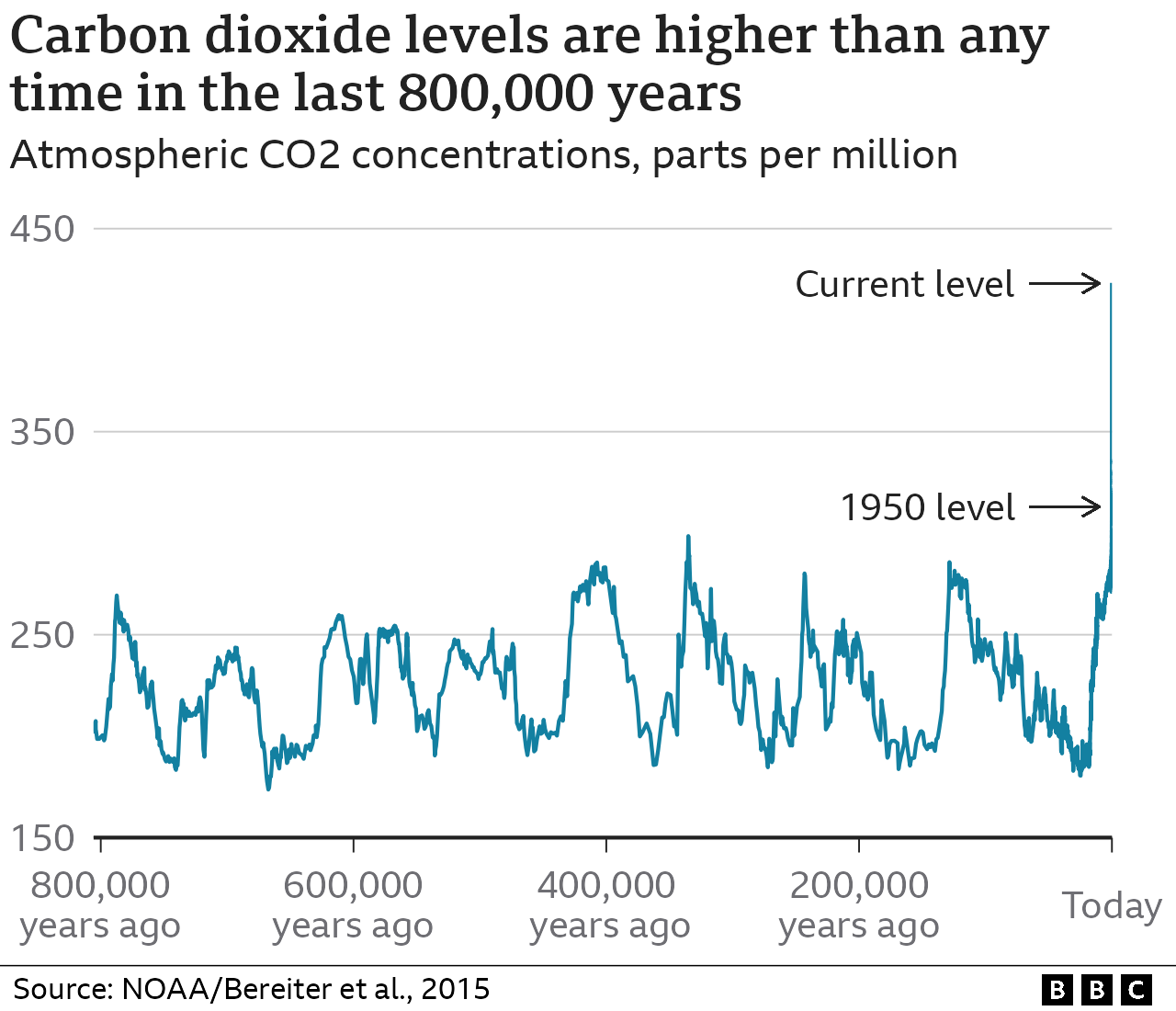
Since the start of the Industrial Revolution – when humans started burning large amounts of these fuels – the amount of CO2 in the atmosphere has risen by over 50%, and is still growing.
As a result of the increase in CO2 and other greenhouse gases like methane, the world is now about 1.1C warmer than it was in the late 19th century.
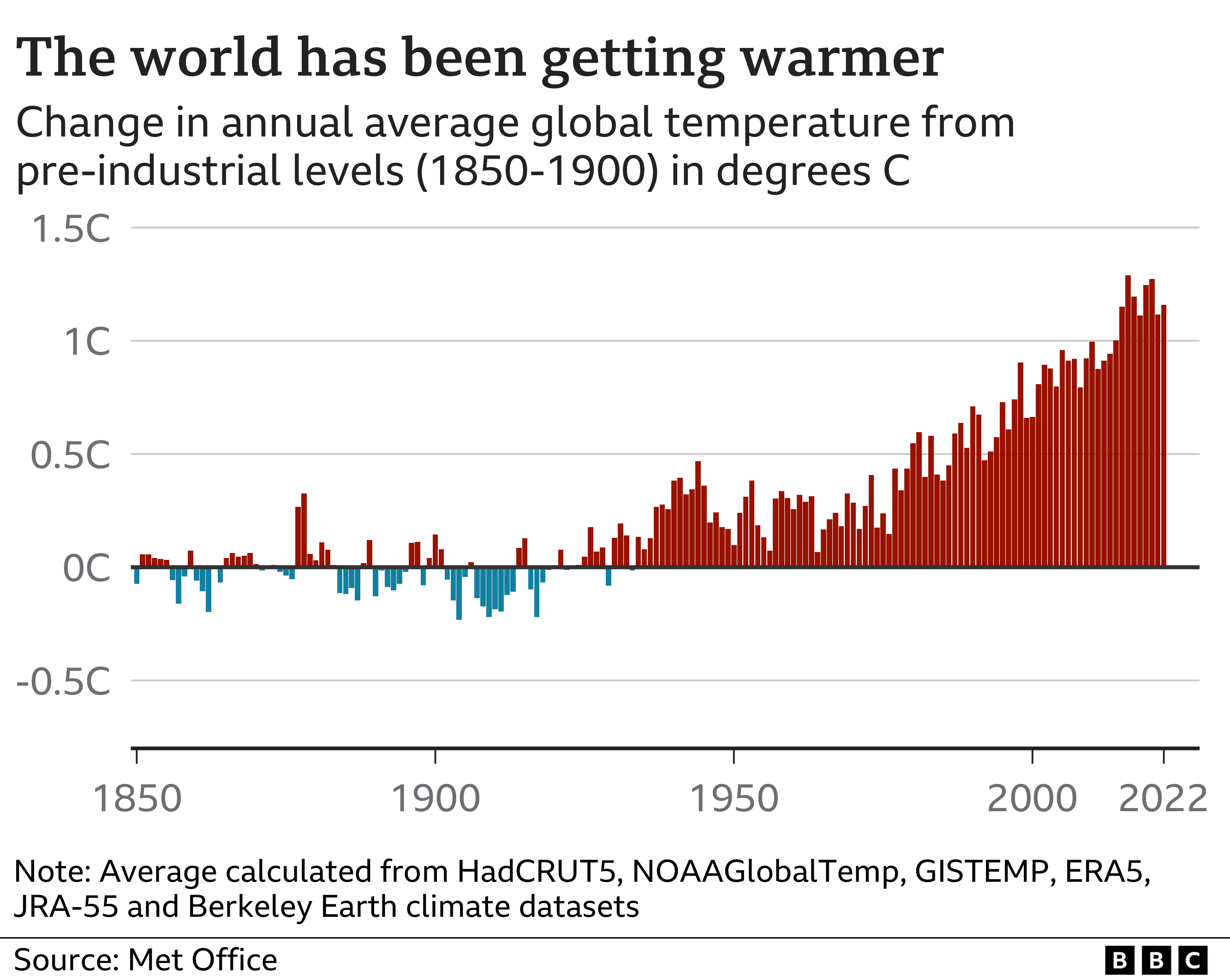
What are the effects of climate change so far?
A global average temperature increase of 1.1C might not sound much, but it has already had a huge effect on the environment. Impacts so far include:
- more frequent and intense extreme weather, such as heatwaves, drought and floods
- rapid melting of glaciers and ice sheets, contributing to sea level rise
- huge declines in Arctic sea ice
- ocean warming and marine heatwaves.
People’s lives are already changing as a result. For example, the ongoing East African drought has put more than 20 million people at risk of severe hunger. The 2022 European heatwaves led to an abnormal increase in deaths.
Extreme weather events have caused trillions of dollars of economic damage in recent decades, but the death toll has actually fallen as early warning systems have improved, according to the World Meteorological Organisation.
How will future climate change affect the world?
Scientists say limiting temperature rise to 1.5C is crucial to avoid the most dangerous impacts of climate change – although these increase with every extra increment of warming.
The 1.5C warming limit was partly designed to avoid crossing so-called “tipping points“.
These are thresholds beyond which changes could accelerate and become irreversible in different parts of the Earth’s climate system, such as the collapse of the Greenland Ice Sheet.
But it’s not clear precisely where these thresholds sit. Some may have already been crossed; some may be further away than first thought.
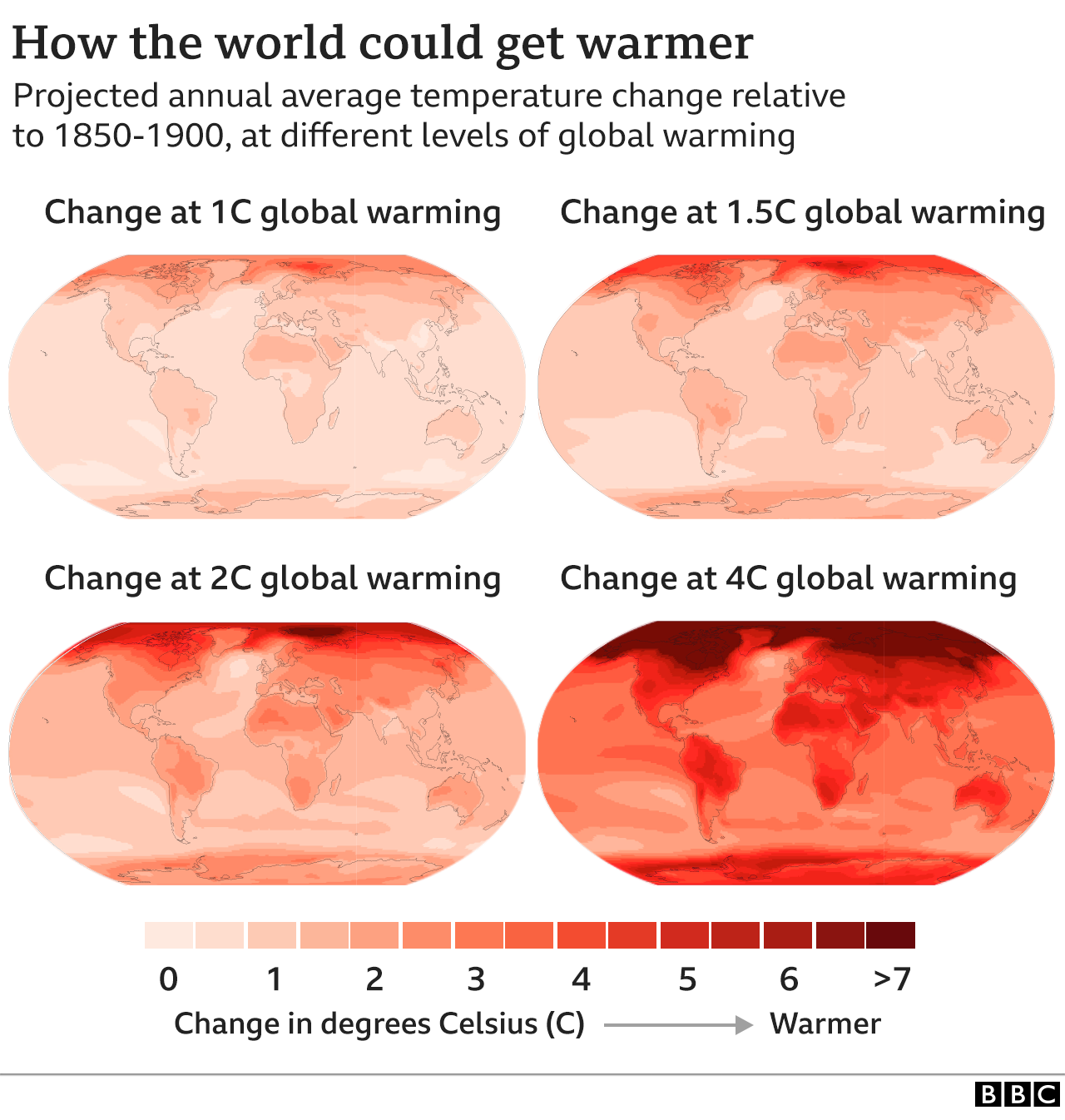
The science is not completely certain, but the impacts of 2C global warming versus 1.5C could include:
- extreme hot days would be on average 4C warmer at mid-latitudes (regions outside the poles and tropics), versus 3C at 1.5C
- sea-level rise would be 0.1m higher than at 1.5C, exposing up to 10 million more people
- more than 99% of coral reefs would be lost, compared with 70-90% at 1.5C
- several hundred million more people may be exposed to climate-related risks and susceptible to poverty by 2050 than at 1.5C.
About 3.3 to 3.6 billion people are classed as being highly vulnerable to climate change, according to the UN’s climate body, the IPCC.
People living in developing countries are expected to suffer the most as they have fewer resources to adapt.
This has led to questions about fairness, because these places have typically contributed only a small percentage of the greenhouse gases which caused climate change in the first place.
However, impacts in one place can have knock-on effects for all regions. For instance, people being displaced from one area could lead to mass migrations, and crop failures linked to extreme weather could raise global food prices.
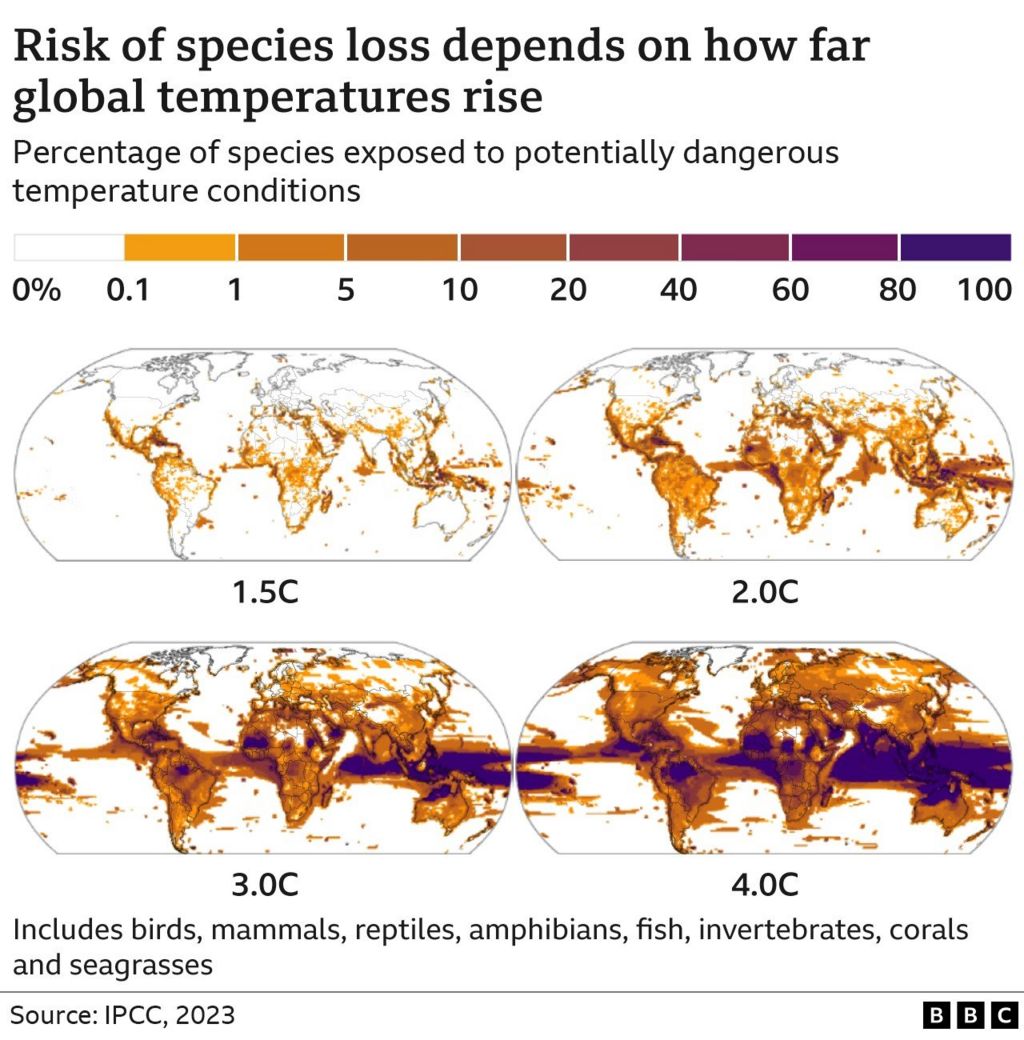
What are governments doing about climate change?
In a landmark agreement signed in Paris in 2015, almost 200 countries pledged to try to keep global warming to 1.5C.
To achieve this, scientists said that countries should achieve net zero CO2 emissions by 2050. Net zero means reducing greenhouse gas emissions as much as possible, and removing any remaining emissions from the atmosphere.
Most countries have, or are considering, net zero targets, but many of these are dated after 2050.
Real-world action has been slow, and the levels of greenhouse gases in the atmosphere are still rising.
As a result, UN scientists believe the world is “likely” to warm beyond 1.5C based on current government targets.
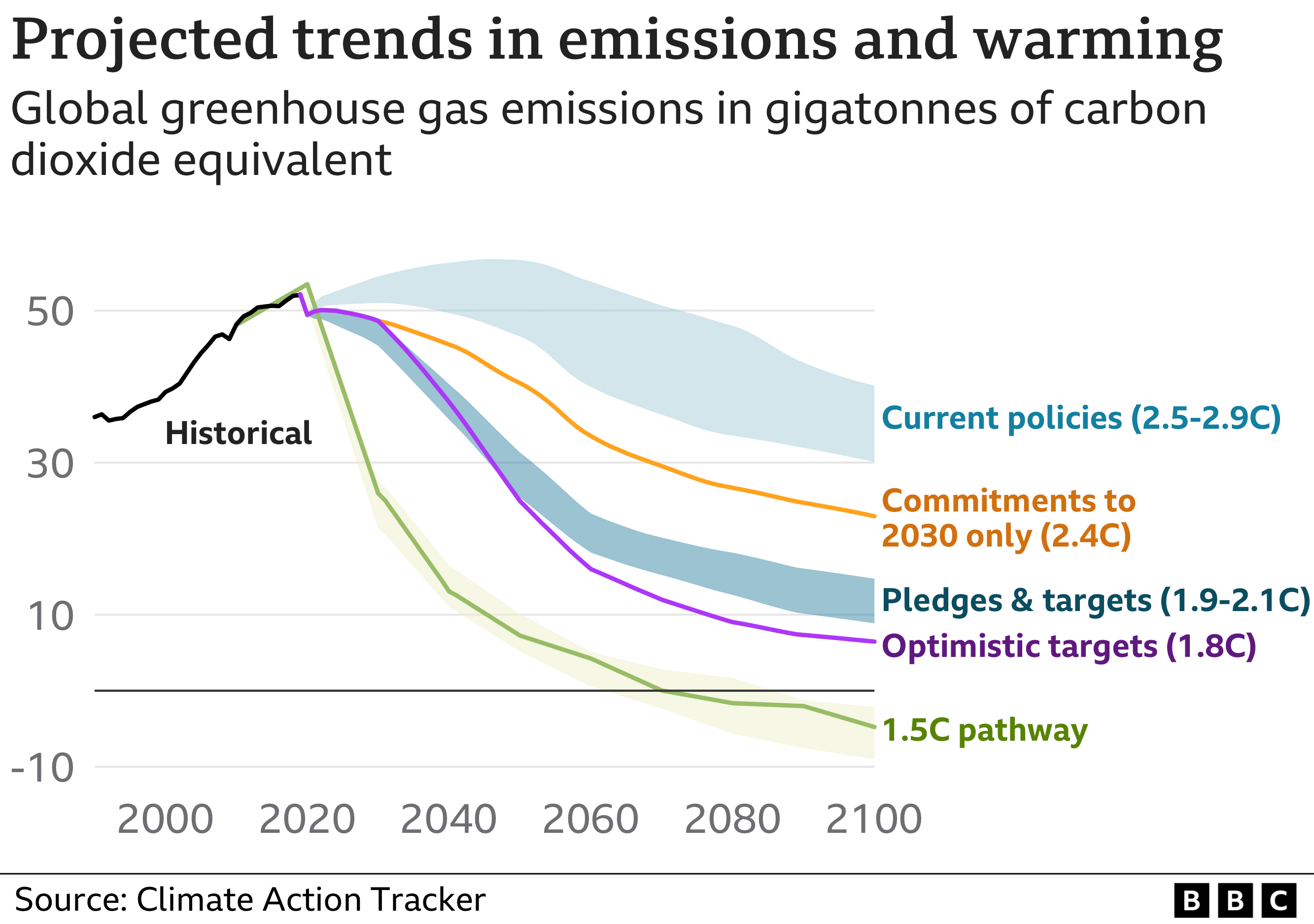
World leaders meet every year to discuss their climate commitments. The next summit (COP28) will be held in the UAE in November and December 2023.
What can individuals do?
Major changes need to come from governments and businesses, but scientists say small changes from individuals can also make a difference:
- take fewer flights
- use less energy
- improve home insulation and energy efficiency
- switch to electric vehicles or live car-free
- replace gas central heating with electric systems like heat pumps
- eat less red meat.



